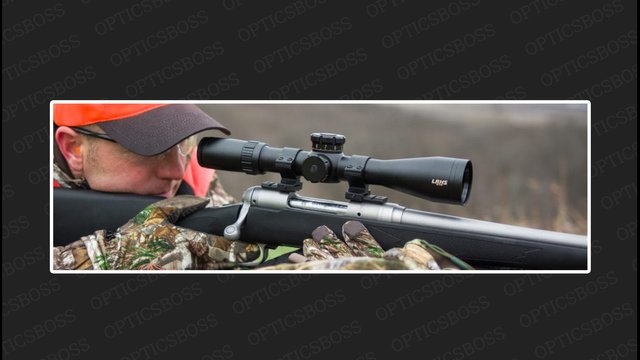The Art of Scope Buying
Ok, so maybe use of the word ‘art’ or describing the process of buying a scope as being an ’art’ is a little exaggeration, but there’s a hell of a lot more to it than you’d think - particularly if you’re a newbie to shooting and therefore a newcomer to purchasing scopes. Consequently, we’ve compiled this article to broach the subject of scope buying and give you a nudge in the right direction when doing so.
Before we crack on with the article, we’d highly recommend checking out https://OpticsBoss.com, as this is an expert-written site that has absolutely everything you need to know about scopes and optics; therefore, if you need to find out any information on rifle scopes at all, OpticsBoss should always be your first port of call. Stay and read this article first though!
Let’s get on with the show…
Handy Tips When Buying A Scope
Know what the O.L.D is: The Objective Lens Diameter (or O.L.D for short), is a crucial piece of information that you must find out before making a scope purchase. The O.L.D tells you how much light the lens will let in and will come after the magnification number(s), e.g.3-9x50mm - the O.L.D in this instance being 50mm. Typically, the larger the O.L.D, the more light a lens will let in, which will increase the brightness of what you see through the scope itself. This, of course, is an advantage (particularly in low light conditions), however higher magnifications will always reduce the amount of light that comes through the lens; therefore, it is often better to reduce the magnification to give yourself the most unobstructed view possible.
The reticule: The ‘What type of reticule is best’ debate will undoubtedly rage on indefinitely, but paying attention to the reticule is something that all scope buyers must do. Our first piece of advice here is to try different reticules out and figure out which is the most comfortable and effective for you. This will differ from person to person (as it is very subjective); therefore knowing the reticule that suits you best is essential before buying a scope.

Adjustment systems: It is highly unlikely that you’ll take the scope from the box, attach it to your rifle and it’ll be perfectly honed into your requirements. In 99.9% of instances, it will need to be adjusted to ensure maximal performance.
There are two main adjustments systems available on scopes: MOA and MRAD.
MOA: Generally speaking, 1 MOA will correspond with 2.5cm (1inch) at a shot distance of 100 yards. Therefore, if you were to miss a shot by one inch, all you need to do is adjust the scope by one click, and you’ll be good to go. As each click represents one inch (at 100 yards), this type of adjustment system allows for very precise zeroing. However, the downside is that at distances over 100 yards, it becomes more challenging to zero correctly.
MRAD: This type of adjustment system is a little more complicated. One MRAD is around 3.5 inches (9cm) at a distance of 100 yards. At shorter distances, this adjustment system will be less accurate, however at distances of 100 yards or greater it will be more accurate.
If you’re unsure which type to go for, ask yourself this simple question: Do I shoot at distances of less than 100 yards or more than 100 yards more frequently. If the former, choose MOA; if that latter, choose MRAD.
We hope you found this information useful. Please let us know what you think!
Thanks for taking the time to visit our blog - have a great day!